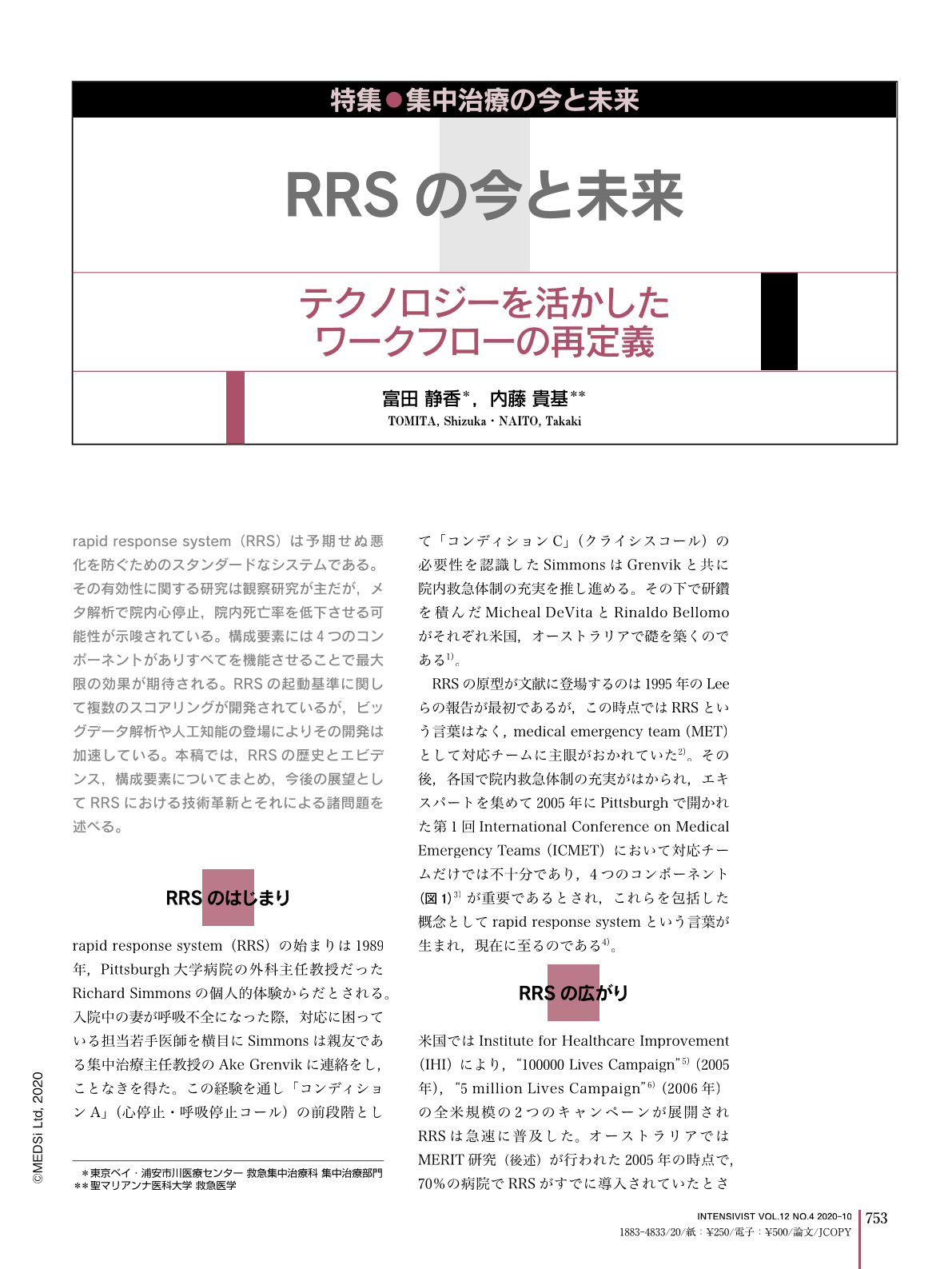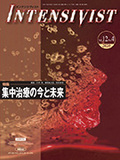Japanese
English
- 有料閲覧
- Abstract 文献概要
- 1ページ目 Look Inside
- 参考文献 Reference
rapid response system(RRS)は予期せぬ悪化を防ぐためのスタンダードなシステムである。その有効性に関する研究は観察研究が主だが,メタ解析で院内心停止,院内死亡率を低下させる可能性が示唆されている。構成要素には4つのコンポーネントがありすべてを機能させることで最大限の効果が期待される。RRSの起動基準に関して複数のスコアリングが開発されているが,ビッグデータ解析や人工知能の登場によりその開発は加速している。本稿では,RRSの歴史とエビデンス,構成要素についてまとめ,今後の展望としてRRSにおける技術革新とそれによる諸問題を述べる。
The Rapid response system (RRS) is a standard system for preventing unexpected adverse events in inpatients. Although most positive evidence about RRS effectiveness comes from chronological trials, meta-analyses reveal that the RRS decreases unexpected cardiac arrests and in-hospital mortality. The RRS is composed of four components. All components should work efficiently to maximize the effect of RRS. The afferent limb is an important component of RRS. Many scoring systems attempt to identify deteriorating patients. Big data analysis and artificial intelligence (AI) promote these fields. In this paper, the history, evidence, and components of RRS are briefly reviewed. The future of RRS, especially innovations with AI, and issues regarding adopting the system are discussed.

Copyright © 2020, MEDICAL SCIENCES INTERNATIONAL, LTD. All rights reserved.


